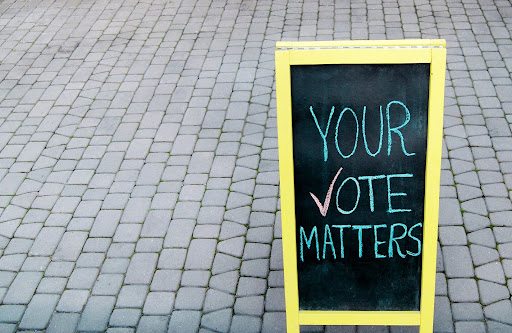
The HOA election of officers is an important part of every homeowners association’s governance. It allows homeowners to elect competent leaders who will make decisions in the community’s best interest. Therefore, knowing how board elections work is equally critical to an HOA’s success.
What is the HOA Election of Officers?
Homeowners associations share many similarities with corporations. Like corporations, HOAs are governed by a board of directors elected by the shareholders. In the case of HOAs, board members are elected by the homeowners.
The election of officers is important when one or more board seats open up. This usually happens when a board member’s term expires, but it can also arise from the removal or resignation of a board member. The HOA’s governing documents, specifically the bylaws, dictate the timing, requirements, and election procedures.
For most communities, the elections occur at the annual membership meeting. Here, homeowners cast their ballots for the candidates they wish to elect into office.
HOA Board Elections: Understanding the Process
Elections in an HOA follow the general sequence below.
1. Select Proposed Voting Deadline
First, the HOA must choose a date for the voting deadline. This date should be 105 days after the board intends to mail the nomination procedures and deadline. The voting deadline is often the same date as the annual meeting or when the HOA will count the ballots.
Existing board members must identify which positions will be up for election. Board terms are often staggered, which means that board seats won’t all open up at the same time. Staggered terms ensure that the board is not entirely empty simultaneously and allow a mix of new and experienced directors.
Associations should expect elections to take 105 to 120 days.
2. Nomination Procedures
As per Civil Code Section 5115, an HOA must send a general notice (or individual notice upon request) of nomination deadlines and procedures at least 30 days before the nomination deadline. If an HOA intends to disqualify a candidate, they must provide them with a chance to participate in internal dispute resolution first.
Associations can only disqualify a person from nomination if the person has been allowed to engage in internal dispute resolution. (Civ. Code § 5105(e).)
During this time, the HOA must also draft the electoral roll. The electoral roll lists all eligible voters in the HOA community. It also includes their identifying numbers (such as lot number or member number), addresses, and contact information. Boards should ensure that their electoral roll is updated. This way, all current homeowners get a vote.
3. Announce and Nominate
The next step is to announce the elections using the appropriate communication channels. Normally, the HOA board should also provide notice ahead of time with a specific timeframe.
At this point, the HOA should also open nominations. Nominations can occur in a few ways: floor nominations, self-nominations, and write-in nominations. Once the HOA establishes its pool of candidates, it can announce the names of those in the running. This is also a good time to create the ballots.
4. Select the Inspector of Elections

The HOA must appoint an election inspector. This inspector must be an independent third party with no conflicts of interest with the association and its election. The HOA must choose an inspector before sending the pre-ballot notice.
5. Send the Pre-Ballot Notice
At least 30 days before distributing the ballots, the HOA must send a general notice consisting of the following information:
- The date, time, and physical address to mail or hand-deliver the votes to the inspector/s
- The date, time, and place of the meeting for counting ballots
- Names of the candidates who will appear on the ballots
6. Review for Accuracy
The HOA must give members and candidates an opportunity to review their information as it appears on the candidate lists and electoral roll at least 30 days before distributing the ballots. The inspector of elections must then correct the inaccuracies or add any omitted information within two (2) business days.
7. Distribute Ballots
The HOA or inspector of elections must mail or hand-deliver the ballots to every association member at least 30 days before the voting deadline and at least 30 days after sending the pre-ballot notice.
The inspector must also deliver the election rules individually or by posting them online. If the inspector posts the rules online, the website address (URL) must appear on the ballot and inform the member that they may find the rules there.
8. Annual Meeting

The HOA must establish a quorum at the annual meeting and call the meeting to order. At this point, those who have yet to cast their ballots may do so. After that, the board or inspector must close balloting.
At this point, the inspectors can begin opening and counting the votes. They will then announce the results. The HOA must post the results within 15 days.
California HOA Election of Officers
It is essential to note that election procedures and requirements can vary from one community to another. State laws and individual governing documents can also influence how elections proceed. In California, there are certain rules and regulations that HOAs must know.
According to Civil Code Section 5105, all HOAs must adopt election rules consisting of the following:
- Procedures for nominating candidates
- Qualifications of candidates
- How the HOA must select independent third parties as inspectors of election
- Access to the HOA’s media channels during campaigns
- Use of the HOA’s common areas during campaigns
- Procedures for secret balloting
- Uncontested elections procedures
- Procedures for recall elections
- Election materials retention
Key Points
Here are some key points in to know about the HOA election of officers in California:
- HOAs must allow homeowners to nominate themselves as candidates for election.
- An HOA may establish a nominating committee. However, this committee does not have the power to reject qualified candidates.
- An HOA may not exclude candidates based on minor technical violations of the nomination process. However, it may exclude candidates who fail to submit their nomination on or before the deadline or who don’t meet the director qualifications.
- HOAs must prepare a candidate list and have candidates review them for accuracy at least 30 days before distributing the ballots. The inspector of elections then has two (2) business days to correct any inaccuracies.
- An HOA must disqualify a candidate if they are not an association member.
- Certain HOA director qualifications are no longer permissible in California. These include requiring the member to have no violations or unpaid fines, disallowing candidates who are in litigation with the HOA, disallowing candidates who have been convicted of a felony within the last 10 years (provided the HOA’s fidelity bond goes unaffected), disallowing candidates who are second- or third-tier registered sex offenders (with the same fidelity bond caveat), and having minimum age or residency requirements, particularly for 55+ communities.
- An HOA must hire an independent third party to assume the role of inspector of elections.
- HOAs must use secret ballots for elections, as per Civil Code Section 5100. Additionally, they must deliver the ballots to every member at least 30 days before the vote deadline.
- Associations need not use balloting for uncontested elections. Instead, they can use election by acclamation.
HOA Elections Frequently Asked Questions
Here are the answers to the most frequently asked questions about HOA elections.
How often do HOA elections take place?
It depends on the homeowners association. However, HOA elections generally take place every year at the annual meeting. Boards should check their governing documents, specifically their bylaws, to ensure they understand the exact timeline and dates.
Can the HOA election of officers be electronic?
Some associations allow online or electronic voting for their elections, though this varies depending on state laws and an HOA’s governing documents.
In California, however, HOAs must use secret balloting for board elections. The HOA must mail or hand-deliver the ballots and two pre-addressed envelopes to homeowners. Homeowners must insert the completed ballots in the first envelope before inserting them into the second envelope, which is then sealed.
Can anyone run for the HOA board?
In theory, any homeowner can run for a position on the HOA board. However, some HOAs may have candidate qualifications. It is essential to check the HOA’s governing documents to understand who can run.
In California, an HOA can disqualify a candidate if they are delinquent on their regular dues, have a joint ownership interest with another board member, have been owners for less than a year, or have a past criminal conviction that would prevent the HOA from getting a fidelity bond or terminating its existing policy.
Are there term limits for board members?
Yes, board members usually have term limits in an HOA. It is important to read through the HOA’s bylaws to understand specific term limits.
Can renters vote?
Whether or not renters can vote depends on the association’s bylaws. More often than not, though, only homeowners receive the right to vote in the election. However, a homeowner may assign their renter as their proxy if the association allows proxy votes.
Assistance With HOA Elections
The HOA election of officers can be confusing, with many requirements and conditions. Still, boards must understand how elections work to avoid an invalid election. An HOA management company can assist boards with carrying out legally compliant election procedures.
Personalized Property Management offers HOA management services around Southern California, including assistance with board elections. Call us at 760-325-9500 or email us at info@ppminternet.com for more information!
RELATED ARTICLES:
